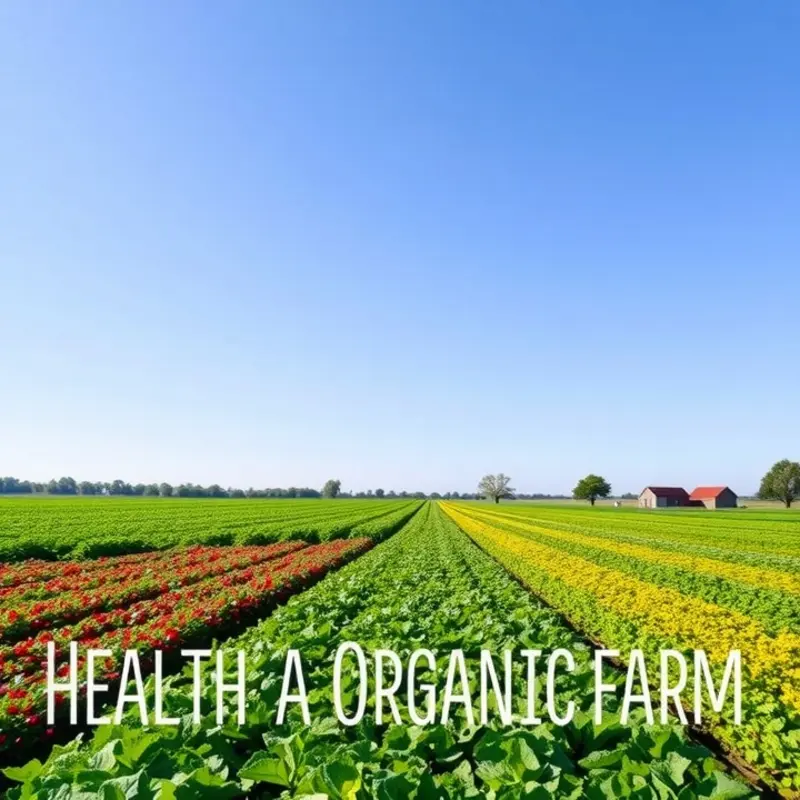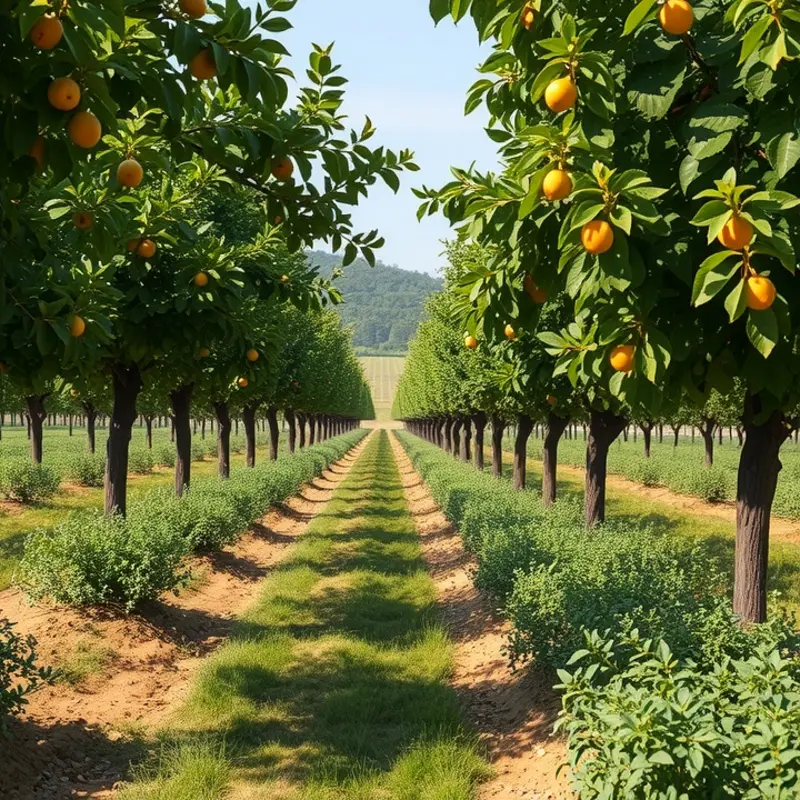Organic food has gained popularity as consumers become more health-conscious and environmentally aware. A common question arises: Is organic food free from pesticides? To address this myth effectively, it’s crucial to understand the organic farming standards and practices that differentiate organic produce from conventional options. This exploration will clarify what ‘organic’ really means in terms of pesticide use and how it influences your dietary choices.
Understanding Organic Standards

The allure of organic produce often hinges on the belief that it is entirely free from pesticides. However, this is not entirely accurate. While organic farming practices do significantly limit synthetic chemicals, the regulations in place allow some naturally-derived substances for pest control. Understanding these standards can enhance consumer insight into how organic and conventional farming differ.
Organic certification is governed by various national and international standards. In the United States, the USDA Organic seal is one of the most recognizable, stipulating that products must contain at least 95% organic ingredients. Within this framework, certain substances are permitted—for example, copper-based fungicides and neem oil are popular in organic agriculture.
The National List of Allowed and Prohibited Substances specifies what can be used for both synthetic and non-synthetic categories. Non-synthetic, or natural, substances are generally allowed unless specifically prohibited. Conversely, synthetic substances are typically banned unless granted an exemption due to a lack of viable alternatives and their minimal impact on human health and the environment.
Organic standards mandate strategies focusing on soil health, crop rotation, and biodiversity to manage pests, weeds, and diseases. Such integrative approaches decrease dependency on chemical interventions, but they do not eliminate problems entirely. Thus, when pest pressures are too great, organic farmers may resort to approved natural pesticides.
To shed light on this subtly complex landscape, consider the common use of non-synthetic pyrethrins. Derived from chrysanthemum flowers, pyrethrins are employed to manage insect populations. While deemed safer than synthetic counterparts, ongoing discussions concern their ecological impact and residue levels. This highlights an important facet of organic agriculture; it is not always free from environmental debates nor immune to scrutiny.
A frequent misconception is that organically grown food is completely devoid of any pesticides. This overlooks the nuances of organic policies that balance natural management techniques with limited permissible interventions.
For those exploring further into related themes, such as understanding ingredient substitutions, they may find interest in related topics such as the benefits of minimal-prep meals that incorporate organic ingredients in streamlined culinary processes. Delve into practical ingredient batching for more ideas on how to efficiently incorporate organics into daily meals without excessive preparation time.
Navigating the landscape of organic standards helps demystify the complexities of organic labeling. While not free from pesticide use, organic farming represents an intention to harmonize agricultural practices with environmental stewardship. By comprehending these standards, consumers can make more informed decisions about their produce choices, aligning their expectations with the realities of these farming practices.
Pesticides in Organic Farming

Organic farming is often associated with natural and environmentally friendly practices. However, the notion that organic foods are completely pesticide-free is a misconception. While organic standards generally prohibit synthetic pesticides, they do allow the use of certain natural pesticides. These substances, derived from sources such as plants or microorganisms, play a pivotal role in organic pest management.
Understanding the implications of pesticide use in organic farming requires examining both safety and environmental impact. Organic pesticides, although natural, are not inherently safer than synthetic ones. Their safety largely depends on the specific compound and the manner of application. Some natural pesticides may pose health risks if consumed in large quantities or applied improperly. Therefore, organic farmers must follow strict guidelines to ensure that pesticide residues remain within acceptable limits.
From an environmental standpoint, organic pesticides typically degrade more rapidly than their synthetic counterparts. This characteristic reduces their persistence in the environment, potentially lowering the risk of contamination in soil and water supplies. Yet, the rapid breakdown can also necessitate more frequent applications, which could offset some environmental benefits.
Monitoring the use of pesticides in organic farming involves rigorous certification processes and compliance checks. Organic certification bodies require documentation of all pest control measures, ensuring adherence to not just national but often international standards. The produce must also undergo testing to verify that any pesticide residues are within permissible levels, safeguarding consumer health.
For consumers, the choice between organic and conventional produce often hinges on perceptions of healthiness and environmental responsibility. While organic produce may contain pesticide residues, these are generally at much lower levels compared to conventional produce. However, it’s essential for consumers to remain informed and critically evaluate these factors when making dietary choices.
The myth of pesticide-free organic produce obscures the complexities of agricultural practices and consumer safety. A more nuanced understanding permits a more informed choice, aligning with personal health and environmental priorities. For comprehensive insights on sustainable food practices, explore our eco-smart kitchen storage guide to enhance your eco-friendly lifestyle.
Final words
While organic food may not be completely pesticide-free, it adheres to strict guidelines that make it safer and more environmentally friendly compared to conventional produce. Organic farmers use natural pesticides and follow practices designed to maintain soil health and biodiversity. This not only minimizes the risk of chemical exposure for consumers but also promotes a sustainable approach to agriculture. Ultimately, choosing organic food is a step towards making informed and health-conscious dietary decisions. Understanding the nuances of organic regulations empowers consumers to prioritize their health and the environment effectively.








